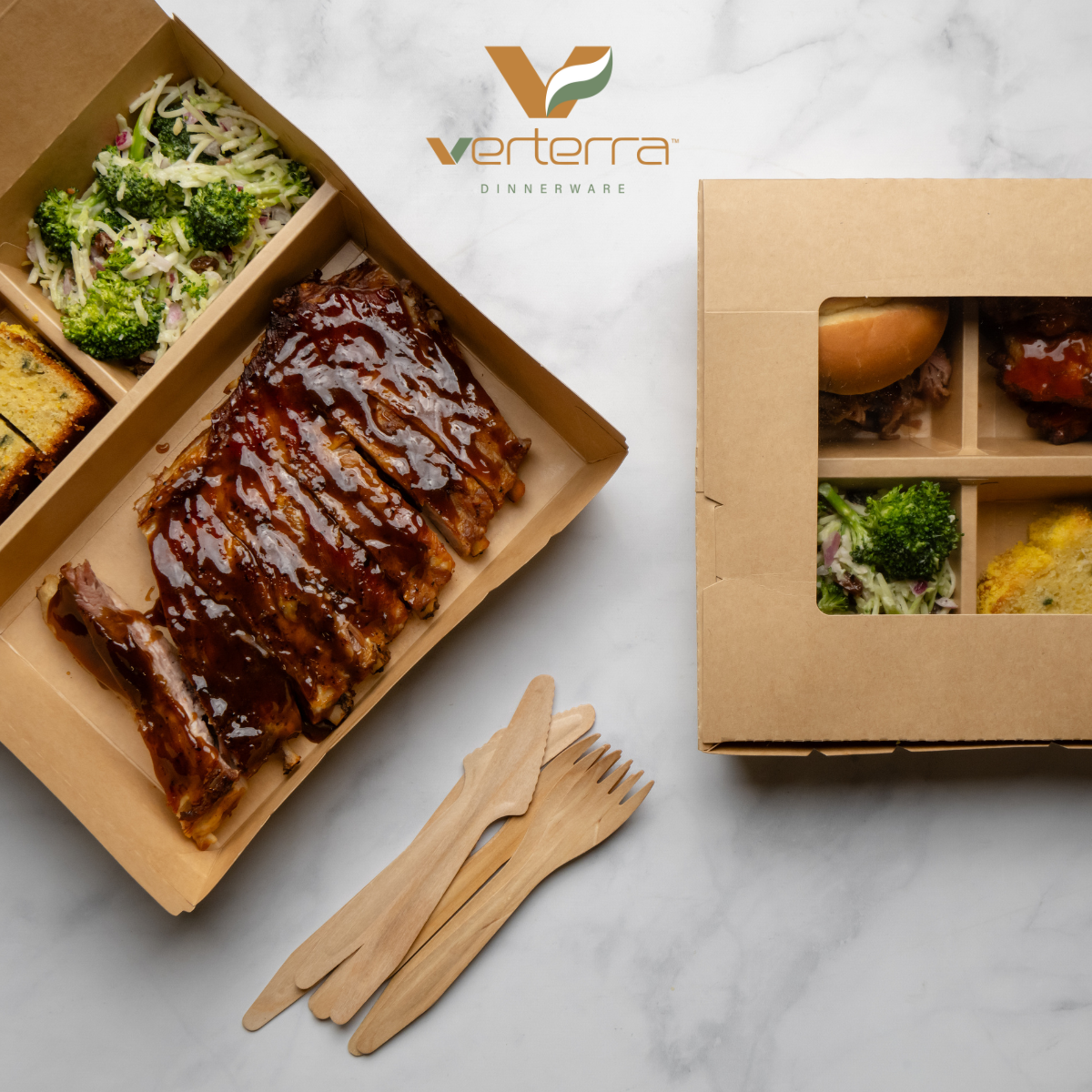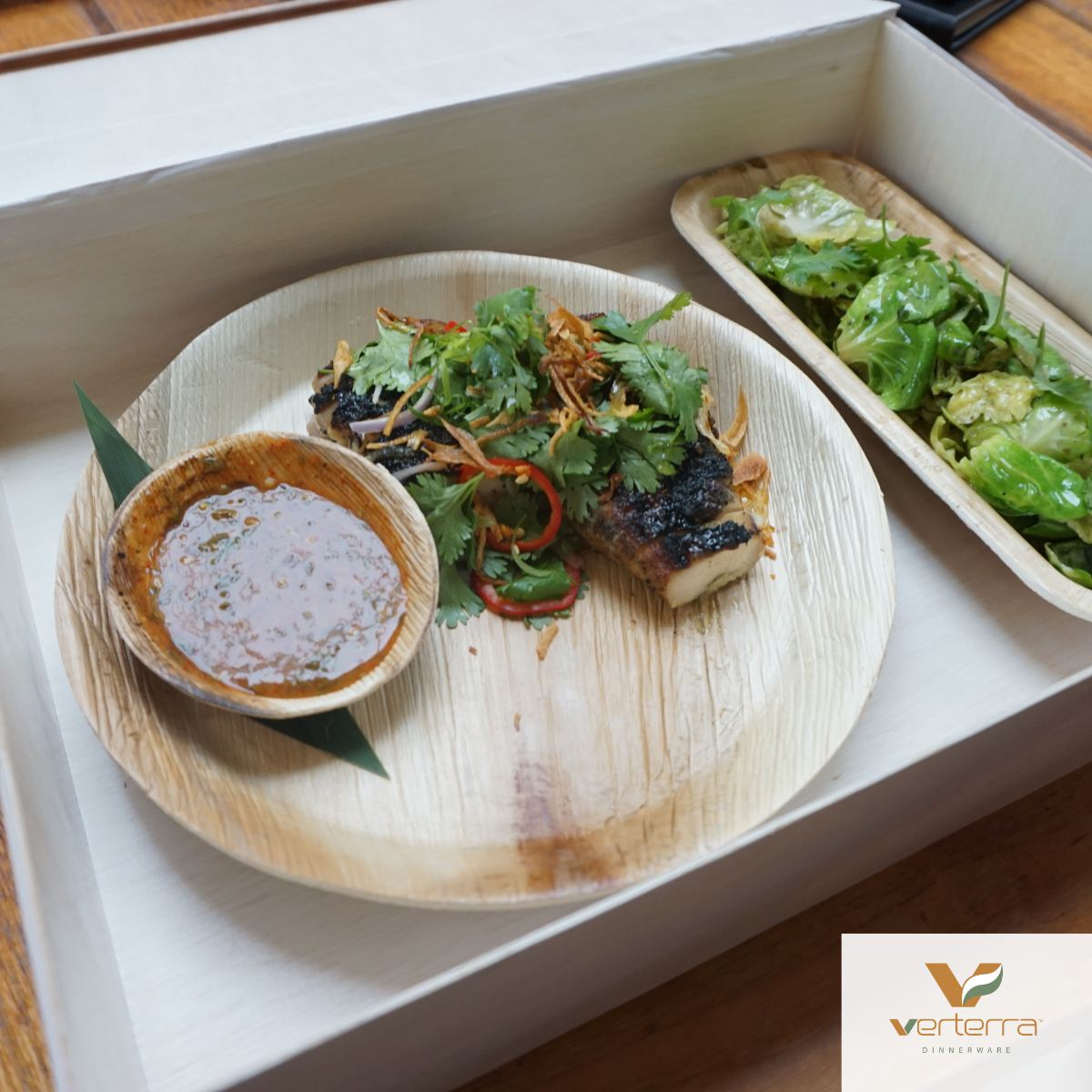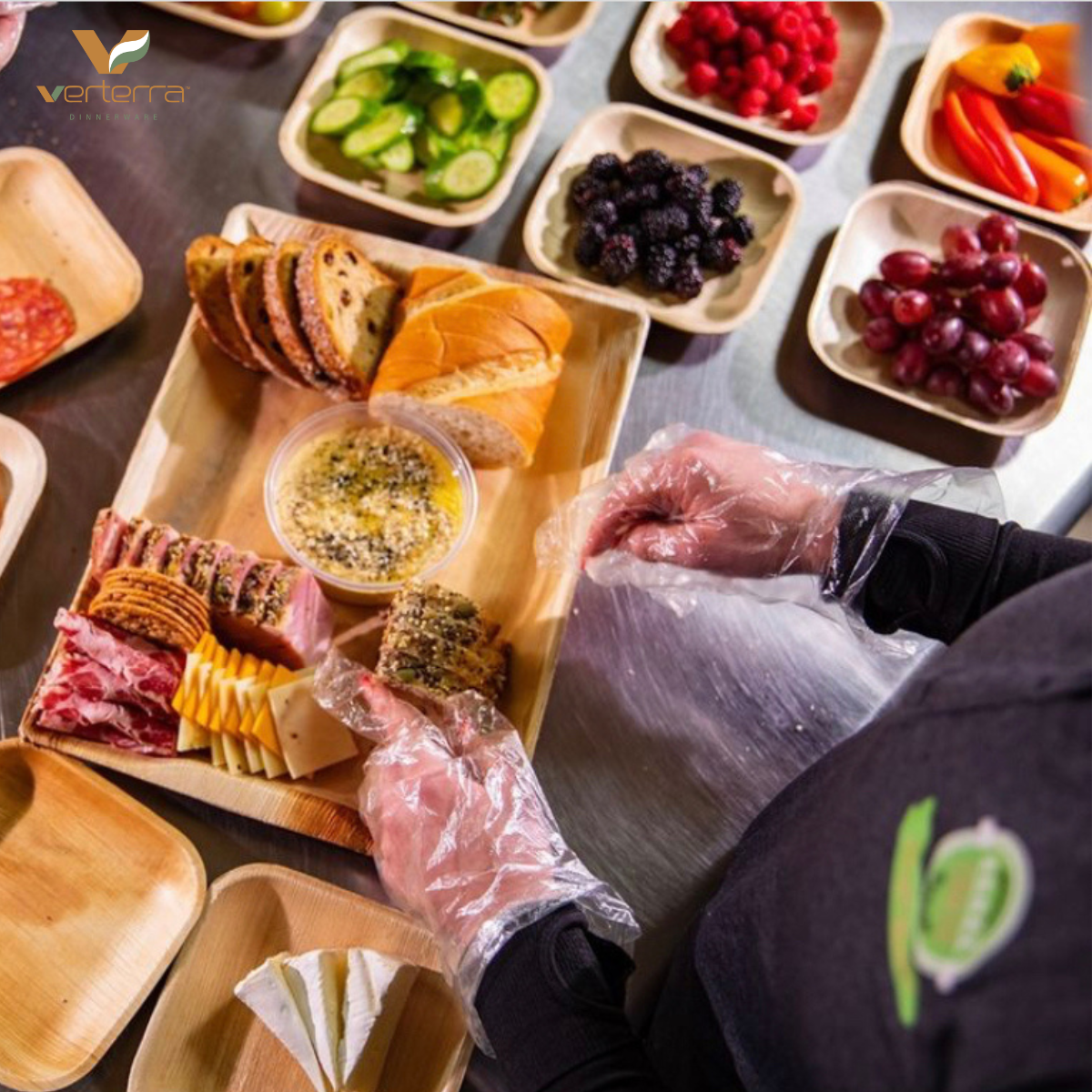
The Future of Food Packaging: Why Compostable is the New Standard
As the global focus on sustainability intensifies, food packaging has emerged as a critical area for innovation. Consumers, businesses, and policymakers are increasingly demanding eco-friendly solutions to mitigate environmental harm caused by single-use plastics. Compostable products, like those offered by Verterra, are setting a new standard for food packaging, blending functionality with sustainability. This shift isn't just a trend—it’s a necessity driven by consumer expectations and environmental realities.
In this blog, we'll explore the rising demand for sustainable packaging, highlight the game-changing impact of Verterra's Balsa Wood Trays with Lids and Paperboard Trays with Lids, and showcase real-world examples of how grocery stores, stadiums, and high-volume caterers are embracing this new standard.
The Push for Sustainable Packaging
The urgency to replace conventional plastic packaging stems from its devastating environmental consequences. According to the Environmental Protection Agency (EPA), only about 9% of plastic waste is recycled, leaving the majority to accumulate in landfills and oceans. In response, consumers are prioritizing sustainable alternatives, with 74% of global consumers willing to pay more for eco-friendly packaging, as reported by McKinsey.
Government regulations are also accelerating the shift, with bans on single-use plastics becoming commonplace in countries like Canada, the UK, and across the European Union. These forces are driving businesses to rethink their packaging strategies, leading to the rise of compostable materials like balsa wood and paperboard.
Verterra: A Pioneer in Sustainable Solutions
Verterra has been at the forefront of this movement, offering compostable, functional, and aesthetically pleasing solutions for food packaging. Among their standout products are the Balsa Wood Trays with Lids and Paperboard Trays with Lids—innovations that perfectly blend sustainability with practicality.
-
Balsa Wood Trays with Lids
-
These trays are crafted from renewable balsa wood, a resource known for its lightweight yet durable properties. The natural wood finish gives them a premium look, making them ideal for upscale catering, grocery displays, and specialty events.
-
Paired with recyclable rPET lids, these trays ensure food stays fresh while minimizing environmental impact.
-
Paperboard Trays with Lids
-
Designed for high-volume use, these trays are made from sustainable paperboard, offering a versatile and eco-friendly alternative to traditional packaging.
-
Their rPET lids are not compostable but are recyclable, making them a pragmatic choice for businesses transitioning to greener practices.
Adoption Across Industries
The versatility of Verterra’s products makes them a natural fit for various industries. Here’s how grocery stores, stadiums, and high-volume caterers are leading the way:
1. Grocery Stores
Grocery retailers like Whole Foods Market and Sprouts Farmers Market have long been champions of sustainability. Many are now adopting compostable and recyclable packaging to align with their eco-conscious branding and meet consumer expectations.
-
Example: Whole Foods Market introduced compostable containers in their deli and prepared foods sections, significantly reducing plastic waste. Verterra’s Balsa Wood Trays with Lids would be a seamless addition to such programs, offering a durable and attractive option for fresh and ready-to-eat foods.
2. Stadiums
Large venues are also making sustainability a priority. With thousands of meals served at each event, the environmental impact of disposable packaging can be staggering.
-
Example: Many stadiums and sports arena’s have implemented a zero-waste program, swapping traditional disposables for compostable alternatives. Verterra’s Paperboard Grab & Go Trays with Lids are ideal for high-capacity venues like this, combining durability with eco-friendliness.
3. High-Volume Caterers
Catering companies serving weddings, corporate events, and banquets are increasingly adopting sustainable packaging to attract eco-conscious clients. Compostable trays not only reduce waste but also elevate the dining experience with their natural aesthetic.
-
Example: Blue Hill at Stone Barns, a renowned farm-to-table caterer, emphasizes sustainability in every aspect of their operations. Verterra’s Balsa Wood Catering Trays would align perfectly with their ethos, providing a sophisticated and sustainable presentation for their culinary creations.
Consumer Demand for Sustainability
The push for sustainable packaging is driven in large part by consumer expectations. A Nielsen report found that 81% of global consumers feel strongly that companies should help improve the environment. This shift in consumer behavior is particularly evident among younger generations like Millennials and Gen Z, who are more likely to support brands prioritizing sustainability.
By incorporating Verterra’s products into their operations, businesses can not only reduce their environmental footprint but also strengthen their brand’s appeal to eco-conscious consumers. For example:
-
Grocery stores can enhance their reputation by offering compostable trays for prepared foods.
-
Stadiums can attract sustainability-minded event-goers by promoting zero-waste initiatives.
-
Caterers can differentiate themselves by showcasing their commitment to green practices during events.
How Verterra Aligns with Sustainable Trends
-
Renewable Resources
Verterra’s balsa wood is responsibly sourced, ensuring that the trays are not only biodegradable but also renewable. This aligns with the broader trend toward reducing reliance on non-renewable materials. -
Recyclability
While the rPET lids used on both the Balsa Wood and Paperboard Trays aren’t compostable, they are recyclable, offering a practical step for businesses transitioning to more sustainable practices. -
Aesthetic Appeal
Sustainability doesn’t have to come at the expense of style. Verterra’s natural wood and sleek paperboard designs are visually appealing, making them suitable for both casual and upscale settings. -
Functionality
Unlike some compostable products that sacrifice functionality, Verterra’s trays and lids are sturdy, leak-resistant, and designed to maintain food quality—critical for high-volume users like caterers and stadiums.
Meeting the Challenges of Composting Infrastructure
One of the common challenges for compostable packaging is the lack of widespread composting facilities. However, the infrastructure is steadily improving, with municipal composting programs expanding across the U.S. Verterra’s focus on creating high-quality compostable products ensures businesses are ready to adopt these solutions as infrastructure grows.
The future of food packaging is clear: compostable is the new standard. Businesses across industries are adopting sustainable practices not just to meet consumer demand, but to lead the way in environmental stewardship. Verterra is proud to be a partner in this journey, offering innovative solutions like the Balsa Wood Trays with Lids and Paperboard Trays with Lids that combine sustainability, functionality, and style.
Explore Verterra’s full range of eco-friendly products and see how they can transform your business. Together, we can create a greener future.
Also in The Dirty Dish

Disposable Luxe: How Compostable Tableware is Reshaping the Event Industry
Gone are the days when disposable meant flimsy, boring, and environmentally careless. In 2025, today’s event professionals are embracing “disposable luxe”—a fast-growing movement that combines elevated aesthetics with eco-conscious choices at affordable prices, making sustainability not just a requirement, but a statement.

The Eco-Conscious Caterer’s Toolkit: Essentials for Modern Events
Clients are no longer just asking what’s on the menu—they’re asking how it’s being served. Today’s tastemakers want elegant, low-waste events that impress guests and align with their values. That’s where Verterra comes in.
In this blog, we break down exactly how to create a stunning, sustainable setup using just five compostable essentials. Whether you’re catering a backyard tasting or a high-end corporate soirée, this is your go-to guide for effortless eco-luxury.
🌿 Sustainable never looked so good.

The Ultimate Guide to Food Boats
Food boats are more than just a convenient way to serve meals—they're a game-changer for eco-conscious food service businesses. Verterra is SETTING THE TABLE FOR A SUSTAINABLE FUTURE for casual cafés to high-end catering, these biodegradable, stylish, and durable containers offer a sustainable alternative to plastic. But not all food boats are created equal. Verterra takes it to the next level with their innovative, chemical-free designs made from renewable materials like kraft paper and balsa wood. Want to know why top chefs and event planners choose Verterra? Read on to discover the ultimate guide to food boats and how they can transform your food presentation while protecting the planet.
